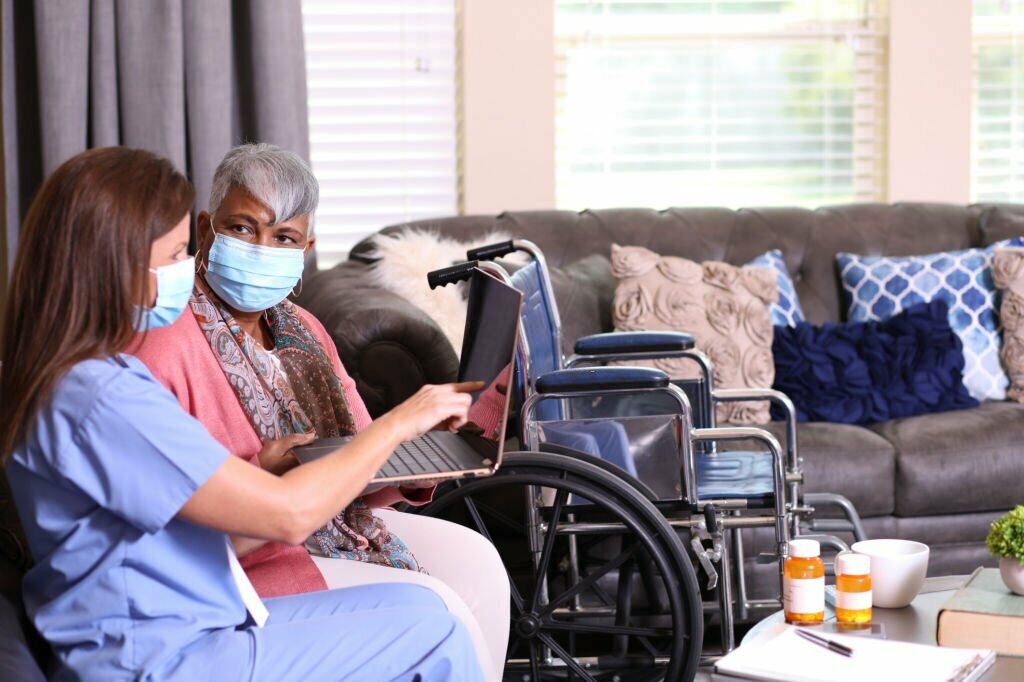Healthy Schedules and Trainees: Impact of Physician Scheduling Apps in Medical Training Centers
In the dynamic panorama of scientific schooling, the advent of medical doctor scheduling apps has emerged as a transformative catalyst.
This in-intensity exploration focuses solely on the profound impact of these apps within scientific training facilities, emphasizing their role in fostering healthy schedules and prioritizing the nicely-being of trainees.
Streamlining Trainee Schedules: A Digital Revolution
In the realm of medical training, the advent of digital solutions has ushered in a transformative era in the form of physician scheduling apps.
1. Automated Schedule Management
Physician scheduling apps revolutionize the complicated venture of coping with trainee schedules, introducing a centralized platform for seamless coordination among supervisors and trainees. The performance received thru automation complements the best of schooling by way of making an allowance for a more streamlined allocation of scientific reports.
2. Tailored Learning Paths
Empowering medical trainees, these apps facilitate the customization of mastering paths. By aligning schedules with unique areas of focus and educational necessities, trainees experience a customised schooling adventure that caters to their precise desires and aspirations.

Promoting Work-Life Balance in Medical Training
The rigorous demands of medical training often place immense stress on trainees, making work-life balance a critical consideration.
1. Time Management Mastery
Physician scheduling apps play a pivotal role in cultivating time control skills amongst clinical trainees. Through the automation of administrative duties, these apps allow trainees to allocate extra time to affected person care, expert improvement, and personal properly-being, fostering a more healthy paintings-life balance.
2. Mitigating Burnout
Addressing the pervasive problem of burnout in scientific schooling, the implementation of doctor scheduling apps contributes to a healthier and sustainable gaining knowledge of surroundings. Optimized schedules and workload management reduce the hazard of burnout amongst trainees.
Enhancing Productivity and Learning Outcomes
In the ever-evolving landscape of medical education, the pursuit of enhanced productivity and improved learning outcomes is paramount. This pursuit has seen a significant boost with the integration of innovative solutions, particularly through the use of physician scheduling apps.
1. Efficient Resource Utilization
Integration with health practitioner scheduling apps ensures most fulfilling resource usage within scientific schooling facilities. From school availability to simulation device, these apps make a contribution to the efficient use of resources, in the end improving the overall productivity of schooling packages.
2. Data-Driven Insights
Many physician scheduling apps offer directors valuable facts-driven insights. This section explores how these insights can be harnessed to investigate tendencies in trainee schedules and learning consequences, facilitating informed choice-making for further optimization.
Addressing Diversity and Inclusion
In the dynamic landscape of medical training, the imperative to address diversity and inclusion has become increasingly central to fostering a robust and equitable learning environment.
1. Inclusive Scheduling Practices
Applications for physician scheduling can be created with inclusivity in mind, taking into account the various needs and preferences of medical students.. This includes accommodating various learning styles, cultural backgrounds, and individual circumstances to create an inclusive and supportive training environment.
2. Cultural Competency Training
Incorporating features for cultural competency training within physician scheduling apps can enhance the cultural sensitivity of medical trainees. This ensures that future healthcare professionals are well-prepared to provide individual -centered care to individuals from diverse backgrounds.
Technology as a Catalyst for Innovation in Medical Training
Technology acts as a transformative catalyst in medical training, driving innovation through the integration of smart solutions like physician scheduling apps.
1. Evolution of Smart Technologies
Physician scheduling apps represent a full-size aspect of the broader evolution of clever technologies in clinical education. This phase examines how those apps align with broader tendencies in healthcare schooling, fostering innovation and flexibility in education methodologies.
2. Telehealth Integration
Aligning with the transformative force of telehealth in scientific education, medical doctor scheduling apps include telehealth functions. This permits trainees to interact in virtual consultations, increasing get right of entry to to healthcare schooling and adapting to the evolving landscape of individual care.

Future Trends and Innovations
In the realm of medical training, future trends and innovations signal a shift towards Artificial Intelligence in physician scheduling apps, promising proactive scheduling management and personalized learning experiences.
1. Artificial Intelligence in Medical Training
Looking beforehand, the combination of Artificial Intelligence holds promise for improving the performance of health practitioner scheduling apps. AI algorithms studying historic data can expect trainee scheduling styles, allowing greater proactive time table control.
2. Personalized Learning Experiences
Future improvements in physician scheduling apps may introduce features for personalized learning studies. This ought to contain adaptive scheduling algorithms catering to person trainee studying styles, choices, and career aspirations.
The Human Element: Mentoring and Professional Development
The human element takes center stage in medical training as physician scheduling apps evolve to incorporate mentoring features, fostering guidance and career development.
1. Mentorship Integration
Beyond agenda management, doctor scheduling apps can contain functions that facilitate mentorship programs. This integration fosters a sense of guidance and assist, permitting experienced practitioners to offer insights, advice, and career improvement opportunities to scientific trainees.
2. Professional Networking Platforms
Physician scheduling apps can evolve into comprehensive platforms that increase past scheduling functionalities. They can incorporate factors of expert networking, connecting medical trainees with mentors, friends, and industry professionals. This holistic technique contributes to the overall boom and development of trainees.

Evaluating Program Effectiveness
Evaluating program effectiveness in medical training, physician scheduling apps offer outcome-based assessment tools that provide a comprehensive understanding of trainee performance and the impact of schedules on their preparedness for future roles.
1. Outcome-Based Assessment
Physician scheduling apps, whilst incorporated with outcome-primarily based evaluation equipment, contribute to a more education packages. This includes assessing the impact of schedules on mastering results, affected person care, and preparedness of medical trainees for destiny roles.
2. Continuous Program Adaptation
Data analytics from doctor scheduling apps can inform non-stop program model. By studying styles and tendencies, scientific education centers can proactively regulate schedules, coaching methodologies, and sources to cope with rising challenges and possibilities by healthcare professionals.
Conclusion
The impact of physician scheduling apps on medical schooling facilities is profound, transcending the traditional barriers of time table management.
These apps emerge not most effective as green tools for optimizing schedules however as catalysts for nurturing a more fit, extra balanced, and inclusive gaining knowledge of surroundings for clinical trainees.
By integrating era with a human-centric approach, those improvements promise a future wherein clinical specialists aren’t most effective well-skilled however resilient, culturally touchy.




